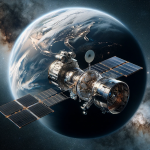In light of rising geopolitical tensions between China and Taiwan, a significant detail has emerged regarding Taiwan Semiconductor Manufacturing Company (TSMC). The company is equipped with the ability to remotely disable the machinery used in chip production for major clients like Apple and other US companies. This capability serves as a strategic safeguard should China decide to invade Taiwan, reflecting the intricate interplay between technology and global political stability. Understanding this lever of control adds a new dimension to the ongoing discourse on supply chain security and international relations.
Founded in 1987, TSMC is the world’s largest dedicated semiconductor foundry, headquartered in Hsinchu, Taiwan. The company manufactures chips for a wide array of industries, including consumer electronics, automotive, and telecommunications. TSMC is renowned for its advanced technology and innovation in semiconductor manufacturing, making it a critical player in the global tech ecosystem.
Reports dating back to earlier years also highlighted TSMC’s pivotal role in the tech industry. Comparisons reveal that while TSMC has consistently been a cornerstone for tech giants like Apple, the new revelation about its ability to disable machinery remotely adds a layer of strategic significance. Past discussions centered mostly around the economic implications and technological advancements spearheaded by TSMC, while current dialogue shifts towards geopolitical contingencies and security protocols.
Earlier reports emphasized TSMC’s technological prowess and market dominance without delving into the security mechanisms in place. This new insight into their operational capabilities to disable machinery remotely reflects a proactive approach to safeguarding their assets and client interests. It underscores the expanding role of tech companies in geopolitical strategies beyond their immediate business interests.
Geopolitical Implications
The ability of TSMC to remotely disable its machinery underscores the intricate relationship between technology and politics. As tensions between China and Taiwan escalate, the strategic importance of semiconductor manufacturing becomes more pronounced. This power affords TSMC and its clients a measure of control in a potentially volatile situation, ensuring that critical technology does not fall into the wrong hands.
Impact on US Companies
US companies like Apple heavily depend on TSMC for their chip supply. The potential to neutralize chip-making machinery remotely serves as a security measure for these companies, ensuring continuity and safeguarding intellectual property. This capability also highlights the broader implications for the global tech supply chain, stressing the importance of robust security measures amidst geopolitical tensions.
Future Considerations
While the immediate focus is on the geopolitical tensions, the long-term considerations of TSMC’s strategic capability are significant. As technology continues to advance and global interdependencies grow, companies must factor in such geopolitical risks into their operational strategies. The ability to remotely disable machinery is just one facet of a comprehensive approach needed to navigate an increasingly complex global landscape.
Key Takeaways
- TSMC can remotely disable its chip-making machines, safeguarding assets amid geopolitical tensions.
- This capability secures the interests of clients like Apple, ensuring technological control.
- Future strategies must integrate geopolitical risk management alongside technological advancements.
The revelation about TSMC’s ability to remotely disable its chip-making machinery introduces a critical strategic layer to the ongoing discourse on geopolitics and technology. This capability not only secures the interests of major clients like Apple but also underscores the importance of integrating such security measures into broader operational strategies amidst rising tensions. As the global landscape becomes more interconnected and complex, companies must navigate these challenges with a multifaceted approach, balancing technological innovation with geopolitical risk management. This strategic readiness is crucial for ensuring stability and safeguarding assets in an uncertain world.










